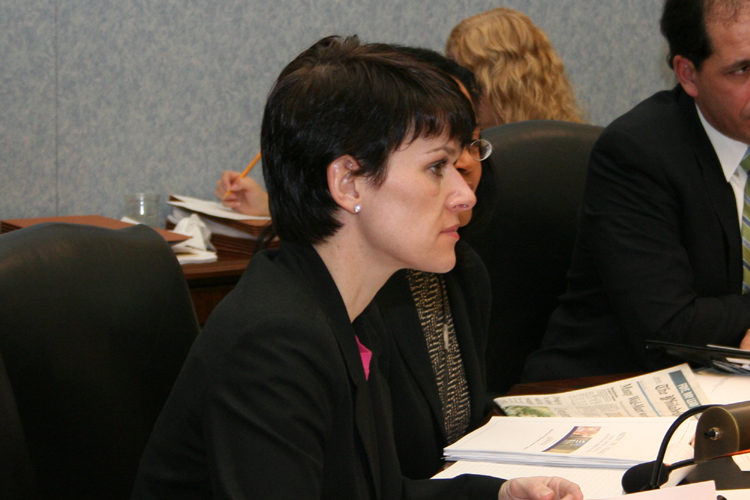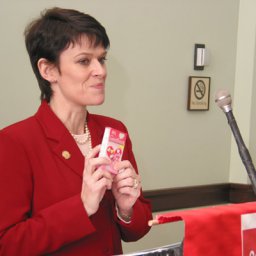
TRENTON – A bill sponsored by Senators Ellen Karcher and Joseph F. Vitale which would require hospitals and health care professionals to advise pregnant women of the option to donate umbilical cord blood and placental tissue to a public or private blood bank was approved by the Senate Health, Human Services and Senior Citizens Committee today by a vote of 8-0.
“As our understanding of medical science expands, we are continually finding new uses for umbilical cord blood and placental tissue,” said Senator Karcher, D-Monmouth and Mercer, the Vice Chair of the Senate Health Committee. “This blood is rich in stem cells, and provides a less-controversial option to further stem cell research, as well as providing treatment options for patients in need of bone marrow transplants or suffering from leukemia or other blood-based diseases. Rather than be discarded as medical waste, umbilical cord blood and placental tissue can be collected, at no harm to mother or child, and used to benefit so many others.”
“As the first State in the nation to create a publicly-funded umbilical cord blood bank, New Jersey has positioned itself as a leader in using cord blood for medical treatment and research,” said Senator Vitale, D-Middlesex, the Chair of the Senate Health Panel. “We’ve adopted a Statewide educational campaign to make sure that expectant moms know they have options in donating to the cord blood bank. With this legislation, we’re expanding our outreach so that we get the greatest possible participation in cord blood donation.”
The bill, S-2736, would ensure that a pregnant woman in New Jersey be advised by her hospital or health care professional of the different options in donating umbilical cord blood or placental tissue, including public blood banks associated with the National Marrow Donor Program and commercial storage programs. In addition, the Department of Health and Senior Services would create a brochure detailing donation options for pregnant women, which would be provided to patients receiving pre-natal care. The bill would not apply to any hospital or health care professional who is directly affiliated with a religion that opposes blood transfer on moral grounds.
“By clearly pointing out every option to pregnant patients, we can maximize the participation in New Jersey’s umbilical cord blood donation programs,” said Senator Karcher. “Through this bill, we can support stem cell research as a means to cure so many currently incurable diseases, and provide cutting-edge medical treatment to those in need. I think when provided the different options, many of New Jersey’s moms-to-be will seek to donate to such a great cause.”
“The bill further stipulates that donations are done at no cost to the patient or the hospital, but rather the bank receiving the donation,” said Senator Vitale. “Cord blood donation is a safe way for pregnant women to help expand medical research and provide necessary treatment to people suffering from blood cancer and other diseases. While the birth of a child can be a miracle in the lives of family members, though cord blood donation, pregnant women can share that miracle with so many others in New Jersey.”
The bill now heads to the full Senate for consideration.



